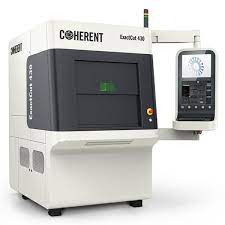The Power of Precision Laser Systems
Precision laser systems have revolutionized industries ranging from manufacturing to healthcare with their unparalleled accuracy and versatility. These cutting-edge systems utilize advanced laser technology to deliver precise results that were once thought impossible.
One of the key advantages of precision laser systems is their ability to achieve intricate and detailed work with minimal margin for error. Whether it’s cutting materials with micron-level precision in manufacturing processes or performing delicate surgical procedures in healthcare, these systems offer unmatched control and consistency.
Manufacturers rely on precision laser systems to create complex components with tight tolerances, ensuring the highest level of quality in their products. The ability to cut, weld, and engrave materials with pinpoint accuracy allows for greater efficiency and cost-effectiveness in production processes.
In the medical field, precision laser systems play a crucial role in minimally invasive surgeries, diagnostic imaging, and therapeutic treatments. The ability to target specific tissues or cells with precision reduces the risk to patients and improves outcomes, making these systems invaluable tools for healthcare professionals.
Research institutions also benefit from precision laser systems for their ability to conduct experiments with extreme precision and control. From studying the properties of materials at the atomic level to analyzing biological samples with high resolution, these systems enable researchers to push the boundaries of scientific discovery.
As technology continues to advance, the capabilities of precision laser systems will only expand further, opening up new possibilities across various industries. From improving manufacturing processes to enhancing medical treatments and advancing scientific research, these powerful tools are shaping the future in ways we have yet to imagine.
5 Essential Tips for Maintaining and Operating Precision Laser Systems with Accuracy and Safety
- Ensure proper calibration of the laser system for accurate results.
- Regularly clean and maintain the optics to prevent interference with precision.
- Use appropriate safety measures when operating laser systems to avoid accidents.
- Consider environmental factors such as temperature and humidity that can affect laser performance.
- Train operators thoroughly on handling and using precision laser systems for optimal results.
Ensure proper calibration of the laser system for accurate results.
To achieve precise and reliable results with precision laser systems, it is crucial to ensure proper calibration of the system. Calibration plays a fundamental role in maintaining the accuracy of the laser output, ensuring that it performs consistently according to set parameters. By calibrating the laser system regularly, users can minimize errors and deviations, ultimately enhancing the quality and reliability of the results obtained. Proper calibration not only improves the performance of the laser system but also extends its lifespan, making it a key practice for maximizing efficiency and achieving optimal outcomes in various applications.
Regularly clean and maintain the optics to prevent interference with precision.
Regularly cleaning and maintaining the optics of precision laser systems is essential to ensure optimal performance and prevent any interference with precision. Dust, debris, or residue buildup on the optics can distort the laser beam, leading to inaccuracies in cutting, engraving, or other tasks. By implementing a routine maintenance schedule that includes thorough cleaning of the optics, users can uphold the quality and reliability of their laser systems, ultimately maximizing their efficiency and accuracy in various applications.
Use appropriate safety measures when operating laser systems to avoid accidents.
When working with precision laser systems, it is crucial to prioritize safety by implementing appropriate measures to prevent accidents. This includes wearing protective gear such as goggles to shield eyes from laser beams, ensuring proper ventilation in work areas to minimize exposure to fumes, and following established protocols for handling and operating the equipment. By adhering to strict safety guidelines, operators can mitigate risks and create a secure environment for utilizing precision laser systems effectively and responsibly.
Consider environmental factors such as temperature and humidity that can affect laser performance.
When utilizing precision laser systems, it is essential to consider environmental factors such as temperature and humidity that can significantly impact laser performance. Fluctuations in temperature and humidity levels can affect the stability and accuracy of laser beams, potentially leading to variations in cutting or engraving quality. By maintaining optimal environmental conditions within the workspace, operators can ensure consistent and reliable operation of precision laser systems, ultimately maximizing their efficiency and effectiveness in various applications.
Train operators thoroughly on handling and using precision laser systems for optimal results.
To achieve optimal results with precision laser systems, it is crucial to thoroughly train operators on their proper handling and usage. By providing comprehensive training, operators can develop the necessary skills and knowledge to operate these sophisticated systems effectively. Proper training not only ensures the safety of personnel but also maximizes the efficiency and accuracy of the laser systems, ultimately leading to superior outcomes in various applications such as manufacturing, healthcare, and research.

No Responses